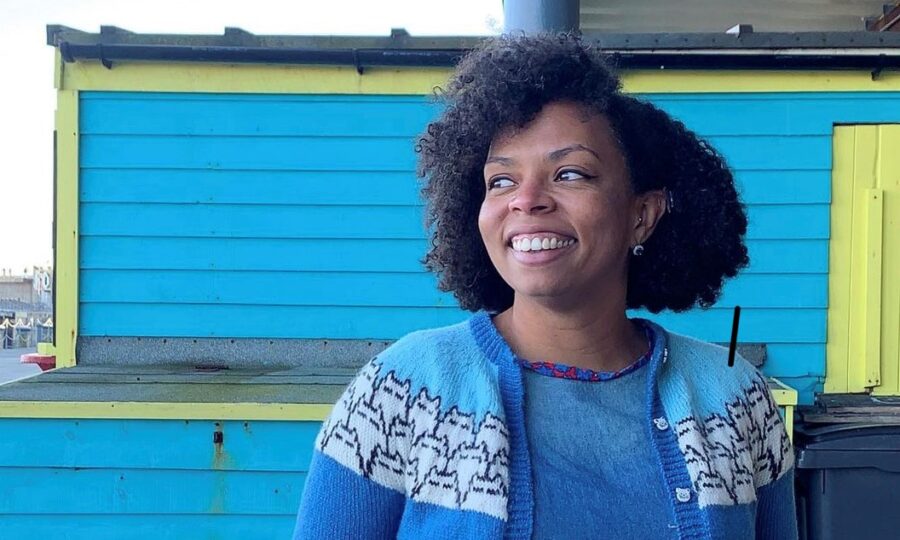Growing pains

Dr Monique Davis on the ins and outs of children’s mental health
7-13 February is Children’s Mental Health Week. The theme is ’growing together’, encouraging children and adults to grow emotionally and find ways to help each other to do the same. It can be tough growing up; children (and adults!) may find it difficult to make friends, open up, or ask for help. At times, we may feel ‘stuck’ and in need of support to keep us growing. The pandemic has made it more difficult, with many children struggling to cope with difficult feelings, anxiety or low mood.
We’ve been discussing children’s mental health with Dr Monique Davis, senior specialist educational psychologist at Islington School Wellbeing Service. She talks about the impact of the pandemic, what to look out for when it comes to children’s mental health and the importance of time away from screens
What are the greatest challenges you think young people are facing today?
This is a difficult question, because young people are facing so many challenges at the moment. We are still coming out of a pandemic and that has really disrupted children’s education. As well as missing learning, many have felt lonely and not had the same chance to develop other important skills such as communication, concentration and cooperation. Some children, such as those living in struggling families, have suffered more than others and it is easy for adults to forget what a hard time children have been through.
The theme of this year’s Children’s Mental Health Week is ‘growing together’, encouraging children and adults to consider how they’ve grown and how they can help others. Why is that important?
It can be helpful for children to understand that they are not the only ones growing! Adults are learning, changing and making mistakes too. It can also help children and young people feel part of a community, which is an important part of our identities. Generally speaking, growing things and spending time in nature can provide a big boost to our mental health, too.
What are some early signs of poor mental health in young people that parents need to watch out for?
Any change to a child’s behaviour can suggest that they are having difficulty with their mental health. For example, if a normally bubby child seems quiet and withdrawn, or if a typically reserved child suddenly seems full of energy. Children can find it hard to tell the difference between their emotions and feelings in their bodies, so they may complain of tiredness, illness (often tummy aches) or hunger more than usual.
What are some ways that parents can help their children through difficult times?
One of the most helpful things parents can do is take the time to spend quality time with their children away from screens and devices. Even spending ten minutes a day reading together, talking over dinner, or playing a board game can help to build a strong bond. Children find it very reassuring to know that they can go to their parents and talk about things that are on their minds, and that their parents will listen, take their worries seriously, and help them think about what they can do.
What are some great things you have seen young people do to support their own mental health?
Young people can be so creative and thoughtful about mental health and there are always interesting groups and projects going on in the schools I visit. One of the best things I have seen young people do to support their mental health is to talk about it – recognising that it’s okay not to be okay. Everyone will struggle with their mental health at some point in their life and yet it’s often something we feel like we have to deal with by ourselves. Talking to someone, whether it’s a friend, parent or teacher, can help us realise we’re not alone and there are different things we can do to help ourselves and each other to feel better.
If your family needs mental health support, there are a number of organisations in Islington that can help:
Shout 85258: a free, confidential, anonymous text support service for those are struggling to cope and need to talk.
Barnardo’s: practical and emotional support to help young people enter adulthood with confidence.
Unlocking Potential: enables children and young people with social, emotional, and mental health needs to unlock their full potential.
Young Minds: provides young people with tools to look after their mental health and empower parents and adults who work with young people to be the best support they can be.
Childhood Bereavement Network: information and links to national and local organisations you or the child you look after might find helpful while experiencing loss of a friend or loved one.
Every Mind Matters: top tips and a range of resources to support children and young people to stay mentally healthy.
